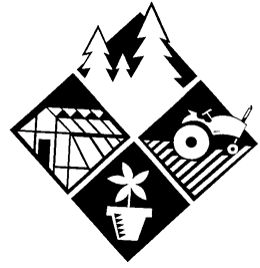The Agricultural Chemical Response and Reimbursement Account (ACRRA) was established to provide financial assistance to cl
Entry during a Restricted Entry Interval (REI)
Early-entry workers must:
- be at least 18 years old
- receive specific instructions prior to early entry in a manner that the worker can understand
- read the applicable pesticide labeling or be informed, in a manner the worker can understand, of all labeling statements related to human hazards or precautions, first aid and user safety
- wear PPE for early-entry workers as stated on the pesticide label
The decontamination supplies for early entry must meet the standards required for handlers. If the pesticide label requires “protective eyewear”, one pint of water in a portable container must be immediately available to each early-entry worker.
Notice of Application/Entry Restrictions (Oral Warnings & Posting)
Employers must notify workers of pesticide applications and of the entry restrictions for each situation if the worker will be within a quarter mile of the pesticide application site or an existing REI. Notification can be given orally or by posting warning signs.
- Posting of warning signs:
- in outdoor production areas with REI GREATER THAN 48 HOURS, workers must be notified by posting warning signs
- in enclosed space production areas with REI GREATER THAN FOUR HOURS, workers must be notified by posting warning signs
- Posting of warning signs OR giving oral warning:
- in outdoor production areas with a REI EQUAL to or LESS THAN 48 HOURS, workers must be notified either by posting warning signs or by giving them oral warning
- in enclosed space production areas with a REI EQUAL to or LESS THAN FOUR HOURS, workers must be notified by posting warning signs or by giving them oral warning
Oral warning must include the location of the treated area, dates and times of entry restriction, and instructions not to enter the treated area or AEZ during an application.
Some pesticide labels require double notification. In such cases the workers must be notified by posting warning signs AND by giving them oral warning.
For details about the WPS, refer to the manual “How to Comply With the 2015 Revised Worker Protection Standard For Agricultural Pesticides”.

Farm Safety Working Group, April 2023
The Farm Safety Working Group (FSWG) is an informal collaboration between state agencies, higher education institutions, agriculture membership organizations, farm safety advocates, private sector companies, and labor and safety organizations focused on improving safety in agriculture.
The FSWG’s purpose is to provide a forum to discuss safety issues in agriculture, connect groups and organizations who are working on farm safety, and organize a collective effort to improve agricultural safety.
Contact us for meeting details.
Local Water Management Plans
In the State of Minnesota, the Board of Water an

